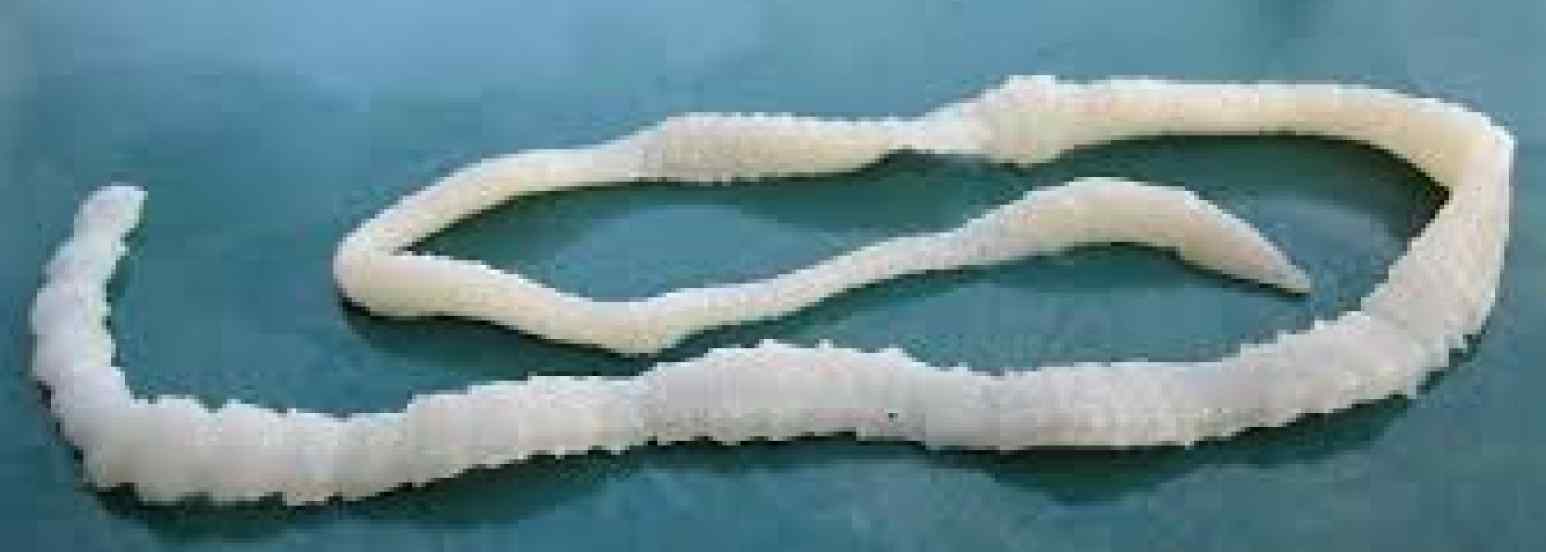Worm Infestation
- Worm infestation occurs when worms live as parasitic adults in the human gastrointestinal tract.
Worms that infect humans can be divided into three groups:
- Roundworms, whipworms, hookworms
- Tapeworms
- Flukes
A patient with a mild infection may not show any symptom. However, some may experience itching around the anal area especially at night. Other symptoms include poor appetite which leads to weight loss, stomach discomfort, restless sleep and inability to concentrate. A worm passed with a stool may also be discovered by the patient or patients parents.
The most common route of transmission for worm infestation is the anus-to-mouth route. This is because eggs are often found under the fingernails of the infected person who has scratched the anal area. When the infected person uses the contaminated fingers to handle and ingest food, the eggs are transferred directly from the anus to the mouth.
Eggs dislodged from the perianal area into the environment can also be inhaled. Eggs may also be spread by house dust, from pets or through contact with contaminated objects such as bedding,
cups, utensils and doorknobs.
Signs and Symptoms
- Parasites are responsible for many ill health conditions including diarrhoea, gastrointestinal upset, vaginal irritation, joint pain, nervous diseases, immune dysfunction and chronic fatigue. Long term, undetected infestation can cause many systemic problems. For the very old, very young or immunocompromised, a parasitic infection can be extremely problematic.
- Signs of infection include less conclusive symptoms such as a runny nose, nighttime restlessness and blisters on the lower lip inside the mouth. If you become infected, be prepared for a rough time. Infected individuals may feel bloated, tired and hungry. They may have allergies, anemia, lethargy, fuzzy thinking, headaches and roller-coastering blood sugar levels. They may experience restlessness, hair loss, diarrhea, arthritis, mineral imbalances and nighttime teeth grinding. One or more symptoms may occur to a greater or lesser degree depending upon the individual.
Especially with heavier infections, intestinal parasites can also cause symptoms such as:
- Loose, foul-smelling stools
- Diarrhea
- Mucous in stools
- Abdominal cramps and gas
- Loss of appetite
- Distended abdomen
- Coughing
- Fever
- Vomiting
- Listlessness and generally feeling unwell.
These symptoms may last for weeks and return several times a year.
What you can do
- Wear tight undergarments to prevent migration of worms
- Keep fingernails short to prevent harboring of the eggs beneath the fingernails which may lead to re-infection
- Wash hands frequently especially before meals and after using the toilet
- Bathe every morning to remove eggs deposited in the perianal region during the night
- Wash all bedding and clothes of the infected individual and the family members in hot water daily during the treatment period
- Do not shake these items as it can spread eggs into the air
- Clean the floor by vacuuming or damp mopping for several days after treatment
- Disinfect toilet seats regularly
You can prevent worm infestation
- Drink safe and clean water
- Proper cleaning and cooking of food
- Regular hand washing particularly after bowel movement and before eating
- Avoid nail biting
When to see a doctor
- Pregnant or breast-feeding
- Under 2 years old
- Anemic
- Liver diseases
- Symptoms persist after treatment
- Recurrent infection
If you have any questions, contact me through the website, email me or call into the pharmacy in Cork.
Garvan J. Lynch (M.B.A.) Public Health, D.I.C.


